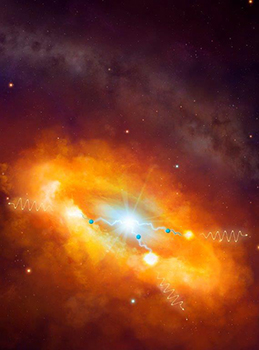Latest News Archive
Please select Category, Year, and then Month to display items
13 December 2019
|
Story Valentino Ndaba
|
Photo iStock
 Safety comes first, fun festive second.
Safety comes first, fun festive second.
Safety never takes a holiday. The University of the Free State’s Department of Protection Services wishes the Kovsie community happy and safe holidays.
Heed these tips when travelling, away on holiday or in the street.
- Be aware of your surroundings and any suspicious-looking persons or behaviour (especially in queues);
- Report any suspicious behaviour or activity to the central security on-site or the South African Police Services;
- Be alert when leaving shopping centres. Should you suspect that you are being followed, drive to the nearest police station;
- Jamming devices are frequently used by criminals, so ensure that your vehicle is locked by physically checking it before leaving;
- All valuables must be safely stowed away in the boot or under the seats in order to avoid smash and grab incidents;
- Do not leave your handbags or valuables unattended while shopping; and
- Obey the rules of the road and carry your driver’s licence with you.Happy holidays! Enter 2020 safe and secure!
Happy holidays! Enter 2020 safe and secure!
Two scientists part of team that discovers the source of the highest energy cosmic rays at the centre of the Milky Way
2016-03-22

Artist's impression of the giant molecular clouds surrounding the Galactic Centre, bombarded by very high energy protons accelerated in the vicinity of the central black hole and subsequently shining in gamma rays.
Artist's impression: © Dr Mark A. Garlick/ H.E.S.S. Collaboration Spotlight photo:
Dr Brian van Soelen and Prof Pieter Meintjes of the UFS Department of Physics.
Photo: Charl Devenish
|
H.E.S.S. (High Energy Stereoscopic System) scientists publically revealed their latest galactic discovery in the international science journal, Nature, on 16 March 2016. These scientists were able to pinpoint the most powerful source of cosmic radiation – which, up to now, remained a mystery.
Part of this team of scientists are Prof Pieter Meintjes and Dr Brian van Soelen, both in the University of the Free State (UFS) Department of Physics. Dr Van Soelen explains that they have discovered a proton PeVatron – a source that can accelerate protons up to energies of ~1 PeV (10^15 eV) – at the centre of the Milky Way. The supermassive black hole called Sagittarius A has been identified as the most plausible source of this unprecedented acceleration of protons.
The protons are accelerated to Very High Energy (VHE) gamma rays. The energy of these protons are 100 times larger than those achieved by the Large Hadron Collider at CERN (the European Organization for Nuclear Research).
According to Dr Van Soelen, the fact that this research has been published in Nature demonstrates the importance and pioneering nature of the research conducted by H.E.S.S. The H.E.S.S. observatory – operational in Namibia – is a collaboration between 42 scientific institutions in 12 countries.
In 2006, H.E.S.S. was awarded the Descartes Prize of the European Commission – the highest recognition for collaborative research – and in 2010 the prestigious Rossi Prize of the American Astronomical Society. The extent of the observatory’s significance places it among the ranks of the Hubble Space Telescope and the telescopes of the European Southern Observatory in Chile.
“The next generation VHE gamma-ray telescope,” Dr Van Soelen says, “will be the Cherenkov Telescope Array (CTA), which is currently in the design and development stage.” Both Dr Van Soelen and Prof Meintjes are part of this project as well.
H.E.S.S. has issued a complete statement about the paper published in Nature.